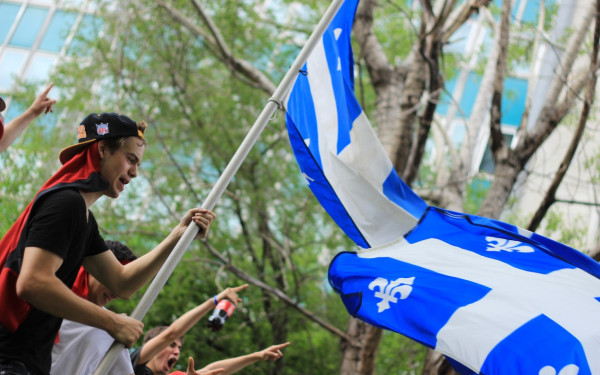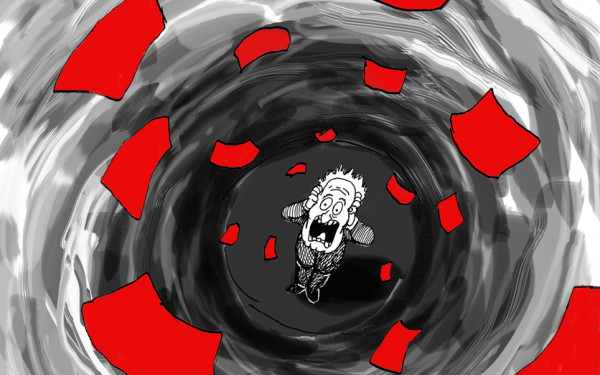Gentlemen, Start Your Tuition Plans
With the dust finally settling around the political landscape of Quebec following a blistering election campaign, the subject of the much-discussed tuition increase is back on the table.
Pauline Marois and her newly elected Parti Québécois minority government are making headlines with their declaration to do away with the Liberal Party’s $1,625 tuition hike.
Striking students have reason to celebrate, but it may be a little early for them to throw their hands in the air and declare a victory just yet.
If the money promised by the Liberals to the Ministry of Education is to be taken back from universities (after having accounted for it in their annual budgets) then there remains a serious lack of funding for higher education in Quebec.
The PQ has indicated plans about a forum for discussion and a “slight” increase—for tuition to be indexed to the cost of living. However, for the moment, nothing is set in stone.
In light of this vacuum, it seems as good a time as any to present the various proposals that have been offered by students and politicians alike over the past few months.
Whatever happens now, students will do well to know what is on the table and what options they have.
Fédération étudiante universitaire du Québec / Fédération étudiante collegiale due Québec
The Proposal:
Creation of a committee to oversee the management of universities, an analysis of the relationship between universities and private enterprises and a five-year moratorium on the construction of a new campus at the Université de Montréal.
A two-year moratorium on all university spending, including tuition fees, until other avenues of financing for higher education can be identified.
The Upside:
Provides time to analyze how education could be better funded without increasing tuition fees, could help with the poor management of administrator salaries and retirement packages.
The Downside:
No guarantee that better means of funding would be found, no information on how the committee would oversee university management or how they would punish mismanagement, a freeze on all university spending could hurt students as well as universities.
Liberal Party of Quebec
The Proposal:
A tuition fee increase of $254 per year over the course of seven years, totaling an increase of $1,778. An increase to the loans and bursaries system of about $39 million to help students deal with the tuition hike.
The Upside:
Would bring in a significant amount of money (upwards of $850 million) for higher education in Quebec; students would retain one of the lowest tuition fees in Canada and pay for roughly 17% of their total education.
The Downside:
Could negatively affect low-income students and make it harder for struggling students to pay tuition; total cost after the increase would be about 75-85% higher than current fees. There has been no study or investigation yet done to examine how this increase would affect access to education.
Parti Québécois
The Proposal:
Cancel the Liberal tuition increase, hold a forum to discuss access to higher education, and plan for an increase to tuition fees indexed to the cost of living.
The Upside:
Could help avoid harmful effects of dramatic tuition increase on low-income students, promote discussion of financing and management of education; indexing increase to cost of living could help spread out tuition hikes to a more manageable level for all students.
The Downside:
No concrete plans as of yet, and no mention of the amount that students would be asked to pay or that universities would receive.
Cancelling a tuition hike after universities have already accounted for it will leave a hole in their budgets, and indexing the increase to the cost of living fails to take into account students whose wages do not increase at the same rate and could still hurt low-income students.
Coalition large de l’Association pour une solidarité syndicale étudiante
The Proposal:
Free education by 2016 funded by capital tax on financial institutions, scrapping major infrastructure projects, freezing salaries of top administrators, and reducing amount spent on publicity and on research.
The Upside:
Free education for all Quebec students, less spending on administrators’ salaries and publicity, while allowing easier access for low-income students who want to attend university.
The Downside:
Less money available for research. There has been little discussion yet of the viability of this plan by any government or institution.
Québec Solidaire
The Proposal:
Free tuition paid for by increases to corporate tax rates, high royalties on mining and water use by large companies, cracking down on tax evasion and buying medicine in bulk.
The Upside:
Free tuition allows for easier access to higher education for all students, allows students to focus more on studies and less on working to make ends meet and theoretically increases the number of students attending and graduating university.
The Downside:
Increases to taxes and royalties could scare away businesses and hurt economy; items like ‘crack down on corruption’ and ‘go after tax evasion’ are easier said than done and might not yield as much money as expected.






_600_375_90_s_c1.jpg)